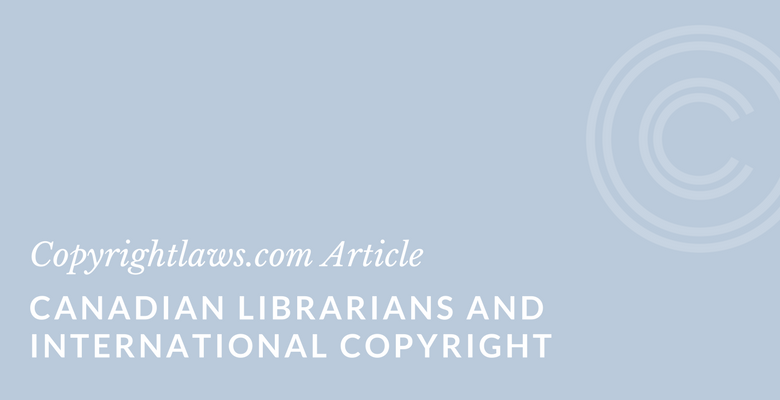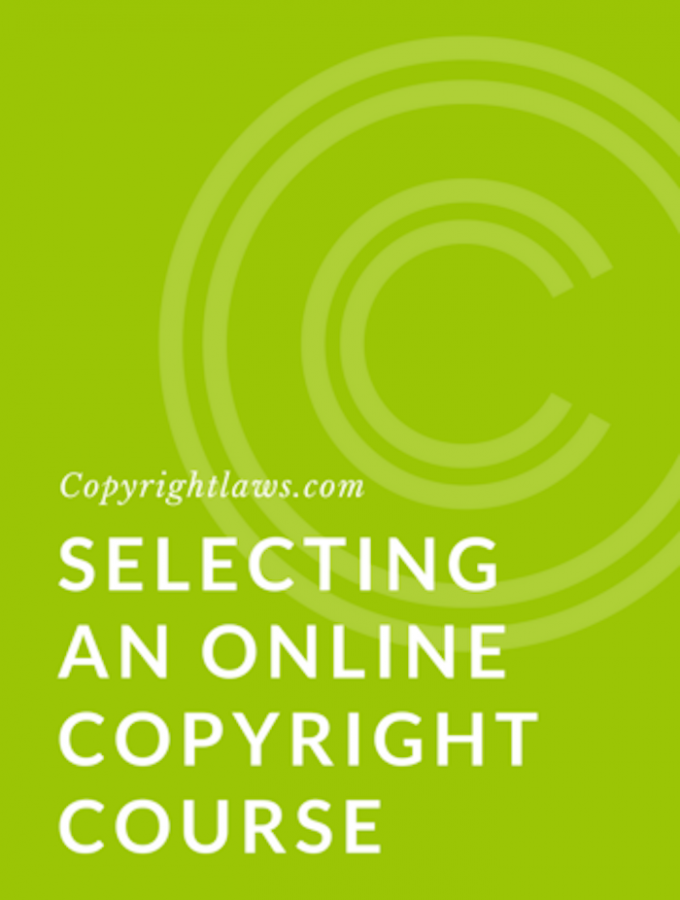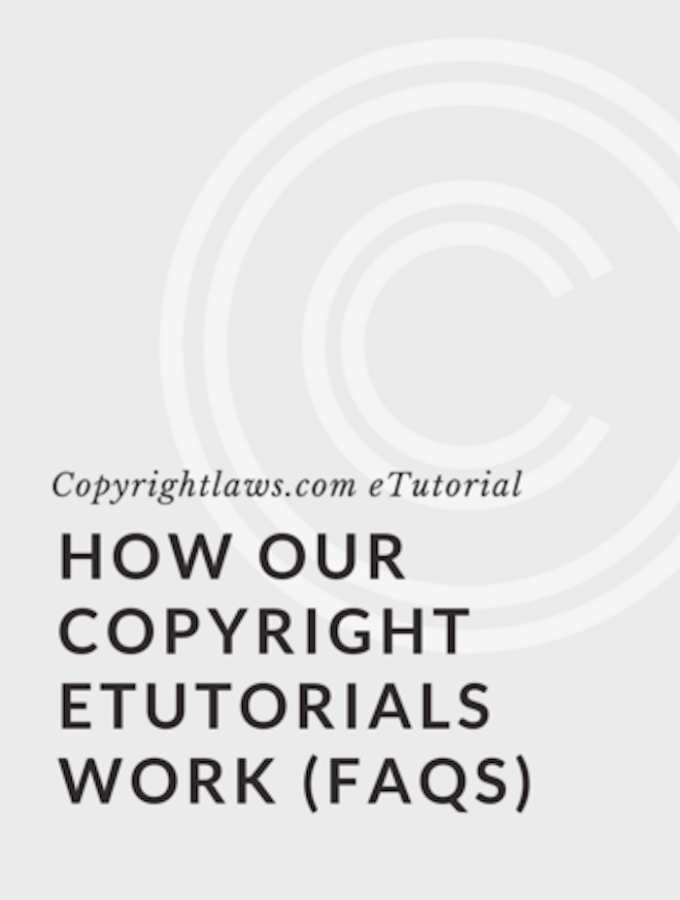 Canadian librarians and international copyright law go hand-in-hand. We explain what Canadian librarians need to know about both Canadian and global copyright law in order to manage the use of content in their libraries and organizations and keep unauthorized uses of copyright-protected materials to a minimum.
Canadian librarians and international copyright law go hand-in-hand. We explain what Canadian librarians need to know about both Canadian and global copyright law in order to manage the use of content in their libraries and organizations and keep unauthorized uses of copyright-protected materials to a minimum.
Why Canadian Librarians and International Copyright?
In the pre-internet days, global copyright management and compliance might have applied to photocopying an article in a Canadian office and mailing or faxing it to an office in London, England. With the internet, an enterprise faces a myriad of new copyright issues, such as:
- Posting an audio recording on its website
- Accessing a licensed database from abroad
- Dealing with rights such as moral rights, which vary greatly from country to country
It's important to understand that most digital and online uses of copyright-protected works may involve international copyright issues.
Keeping up with technology is difficult enough. So, where does a librarian begin to grapple with the global copyright issues that affect their day-to-day management of content?
First: Know Canadian Copyright Law
Canadian copyright law is number one on the list of things a Canadian librarian needs to know about global copyright compliance. This applies to librarians in all kinds of libraries, including:
- Corporate, government and legal libraries
- Libraries in educational institutions and nonprofit organizations
And, definitely know the following general guideline:
Your own country’s (i.e., Canada’s) copyright law continues to govern the majority of your copyright use issues.
You may also like an article describing provisions for libraries and archives in copyright acts around the world.
Second: Be Aware that Copyright Laws Vary Among Countries
Second, you should be aware that copyright laws vary from country to country. Even a country as close as the U.S. has very different copyright laws than Canada. For example:
- Moral rights protection is much stronger in Canada than in the U.S.
- The U.S. fair use doctrine doesn't exist in Canada (although Canada has fair dealing)
- In the U.S., and Canada, the duration of copyright protection is life of the author plus 70 years after their death; in Canada, the duration was life-plus-50 until the end of 2022. Therefore, some works have entered the public domain after 50 years and some will not enter the public domain until the end of the new duration of 70 years.
As a further example, the copyright statues of countries like France and Italy protect moral rights (paternity and integrity of an author) in perpetuity. These rights cannot be assigned to another person or waived. There are few exceptions or limitations on the rights of copyright owners in these countries. On the other hand, authors can waive their moral rights in Canada and moral rights expire when copyright expires.
Third: Understand There's No International Copyright Law
Third, you should understand there's no such thing as international copyright law. However, there are copyright treaties and the leading one is the Berne Convention. It's up to Berne member countries to amend their laws to meet the minimum standards Berne requires of member countries. (There are currently 181 Berne member countries and this number changes from time to time.)
As an example of how Berne works, this treaty provides a minimum copyright protection of 50 years from the author’s death (life-plus-fifty). Many countries follow this minimum standard. However, countries are free to provide a longer period of copyright duration. As an illustration of this point …
- The U.S., Canada and European Union countries, among others, protect copyright works for the life of the author plus 70 years after death. This means that if you use a copyright-protected work in the U.S., you have to clear the copyright in the work if the author has been not been dead for 70 years.
- If you use the same work in Canada, you may freely use it if copyright expired after the original duration of life-plus-50 before 30 December 2022. Otherwise the life of the author plus 70 years after death rule applies.
- However, if you're using that work on a website accessible around the world, you should follow the rule that you apply the law of the country where the work is being used. This is the principle of national treatment, a requirement for Berne member countries. So, even if you're located in a county which has a life-plus-fifty duration, you would clear the rights for life-plus-seventy to “cover yourself” for access from the U.S. and other countries with the longer duration of copyright protection.
Fourth: Understand How Licence Agreements Govern Use of Digital Content
In many circumstances, your licence agreements for digital content (such as databases and periodicals) govern terms and conditions for using this content. The following are some examples of clauses you need to consider from a global perspective.
Authorized Users Clause
- The Authorized Users clause may allow only employees present in your Canadian library or office to use the licensed content, or it may allow those employees to access the content from outside of Canada.
- The definition of Authorized Users may extend to content users in other countries.
Governing Law and Dispute Resolution Clauses
Also important from a global perspective are the governing law and dispute resolution clauses in your licenses. These clauses set out:
- Which provincial and national laws govern the interpretation of the contract, should that be necessary
- Where any agreed upon mediation or arbitration may take place
- In what jurisdiction any litigation would take place
Keep in mind that although litigation between content owners and libraries is rare, your licenses should address such a possibility. It's always best for the governing law to be that of your own jurisdiction, as your lawyers are likely more familiar with it. Also, consider the cost and time of travel when agreeing to the location for any medication, arbitration or litigation.
Licence Fees and Currency
Canadian librarians also have to consider licence payment details. For example,
- The currency of payment for license fees
- Whether taxes are applicable to those fees
- Who's responsible to pay those taxes (e.g., VAT) when licensing content from a vendor or publisher outside of Canada
Check your existing licenses, and keep these issues in mind when negotiating future licenses.
Learn Canadian and global copyright law and how to confidently apply it to your situations in the fully online Certificate in Canadian Copyright Law program.



